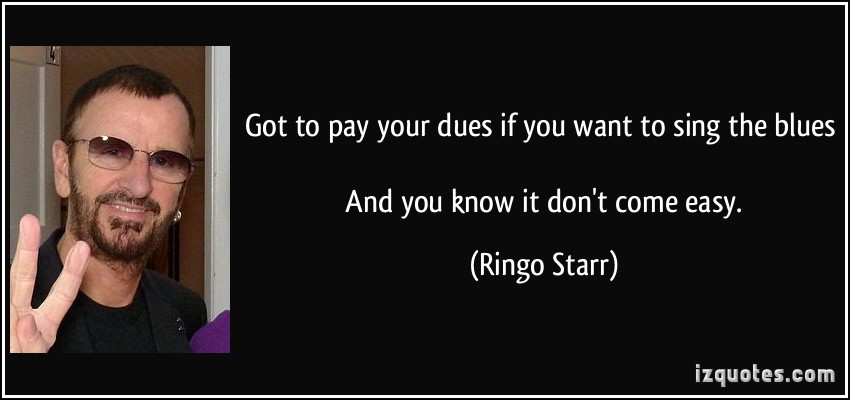Here’s a 2014 study on “millennial preparedness” for the workplace. You could choke about 19,287 horses with the amount of words that have been written about the millennial sensibility as relates to work — I myself am guilty as charged — but this one is a little bit different/interesting. To wit:
- 70% of older respondents said they felt millennials were “unwilling” to pay their dues
- 74% of those same respondents felt millennials “lack a strong work ethic”
- Meanwhile, 89% of millennials believe they do have a strong work ethic
- Only 55% of millennials are willing to pay their dues
Lot to unpack there, but let’s start with a basic caveat: this is one survey, by one org (in this case, an university), and it’s certainly not the be-all-and-end-all of millennial navel-gazing. Every person is different, and therein, surveys are never perfect.
Now let’s analyze.
As for this attitude that older workers think younger workers are slackers and don’t want to pay dues, well … that’s been going on forever. Every generation is inherently skeptical of the generation that follows it, even if that’s literally your kids. That’s the definition of how generations move from one to the next. When millennials are in their 70s, they will say the same stuff about whatever we call their kids and grandkids.
Now, as for the paying dues part … this is where it gets interesting.
Here’s my own personal deal. I’m 34. I’ve never been a manager. To be honest, I don’t think I’ve ever had a job where I felt like I worked a hard 40-50/hours a week. I’ve worked for some notable places — ESPN, PBS, McKesson, I’ve been an inner-city teacher, etc. — and I’ve never really felt very challenged in a job, nor have I ever been jacked up to a managerial level.
On that second point, though, the longest job I’ve ever had is a little over five years (ESPN). Everything else has been about 2 years or so. My current job? I’ve been here 9 months. I have a bastardized Gen X/Y/Millennial thing going where I hop jobs and opportunities a lot. That’s also because I easily get bored, as you might see in the paragraph above.
I personally think the “never-been-anywhere-super-long” thing ties to the “never-been-a-manager” thing. All my friends that are managers, with one exception, worked at their place of business for 8-10 years+ before that started to happen.
In sum, people reward longevity. It’s been that way for generations, and honestly, it will probably stay that way. (Although you can make a pretty compelling argument that companies often do nothing with tenured employees these days except give them more work.)
But is that the right attitude?
I’ve always thought we should try and promote more from potential than straight performance — more on that here — although I understand there are very tricky legal and human bias issues involved in all that. If you promoted off potential — which, it should be noted, probably means more than achievement according to academic research — then you could get rid of this “paying your dues” concept.
When you focus a lot on “paying your dues,” you get an organization that has a lot of Peter Principle problems: people hang around, and they need to go somewhere/make more money, so you promote them to something they can’t really handle. Everyone that works for them subsequently wants to throw themselves off a bridge. Not ideal.
This is similar to a problem you see in hiring around “the linear resume.” Recruiters and HR types love to chase the linear resume narrative, even though that’s not how people coming into the workforce think about it. “The linear resume” is a scourge; it means you get drones, rather than people that went and explored something they were interested in before they started working. That same “lack of real diverse experience” thing will someday kill Silicon Valley.
Can we ever eliminate “paying your dues?”
Probably not, as the idea of someone being at a place for a year or two and getting a huge bump =
- Terrifies managers, because the managers think “This person is coming for my job!”
- Terrifies managers, because they think “This will send the wrong message to others down the chain!”
- Terrifies managers, because it represents a drastic change to the standard systems of promotion and retention, and anything drastic in a workplace automatically causes chaos.
I got a pretty big, didn’t-pay-my-dues promotion at ESPN when I had been there 11 months. Instantly, about 62 percent of people hated my guts. It’s hard.
I don’t think hierarchy is going anywhere, per se — I think it helps stabilize the human brain around what work is, and what needs to be done — but I could be wrong. Sheesh, I hope I’m wrong in some aspect.

